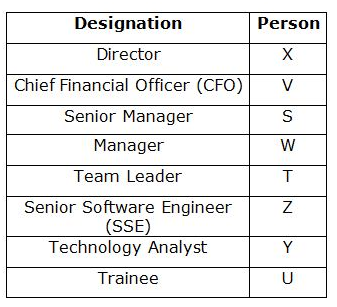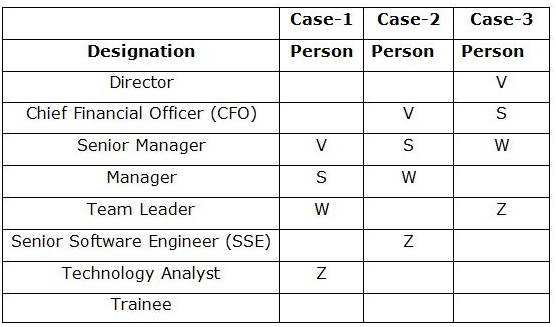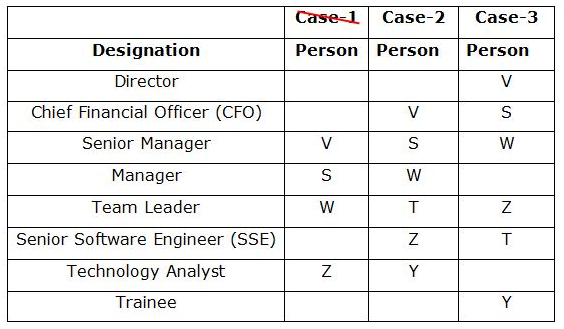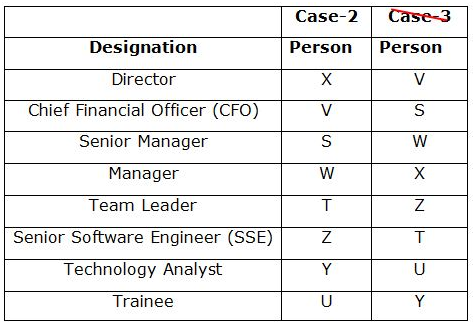
Reasoning Ability Set -625
Jun 18 2025
Here we are providing new series of Reasoning Questions for upcoming exams, so the aspirants can practice it on a daily basis.
Study the following information carefully and answer the questions given below.
Eight persons - S, T, U, V, W, X, Y
V is four persons senior to Z, who is not a Trainee. Only one person is designated between V and W, who is immediately junior to S. The number of persons senior to W is the same as the number of persons junior to T, who is two persons senior to Y. X is senior to U. T is not immediately senior to U.
1) Who among the following person work as team leader?
A.The one who is two persons senior to U
B.V
C.The one who is immediately senior to Z
D.X
E.None of these
2) How many persons are junior to X?
A.As many persons senior to U
B.Five
C.As many persons designated between V and W
D.Four
E.Three
3) Four of the following are alike in a certain way as per the given arrangement and thus form a group. Find the one who doesn’t belong to that group.
A.VT
B.WY
C.SZ
D.ZY
E.XW
4) If all the persons are designated in the alphabetical order from Director to Trainee, then how many persons remain unchanged in their designations?
A.One
B.Two
C.Three
D.Four
E.No one
5) Which of the following statement(s) is/are true with respect to the final arrangement?
I)V is junior to U.
II)Only two persons are designated between S and T.
III) S is the Senior Manager.
A.Only I
B.Only I and II
C.Only III
D.Only II
E.Only II and III
Explanation :

We have,
- V is four persons senior to Z, who is not a Trainee.
- Only one person is designated between V and W, who is immediately junior to S.
From the above condition, there are three possibilities.

Again we have,
- The number of persons senior to W is the same as the number of persons junior to T, who is two persons senior to Y.
From the above condition, Case 1 gets eliminated.

Again we have,
- X is senior to U.
- T is not immediately senior to U.
From the above condition, case 3 gets eliminated. Hence, case 2 shows the final arrangement.

1) Answer: C
2) Answer: A
3) Answer: D (Two persons are designated between both the persons, except option D)
4) Answer: A
5) Answer: C





